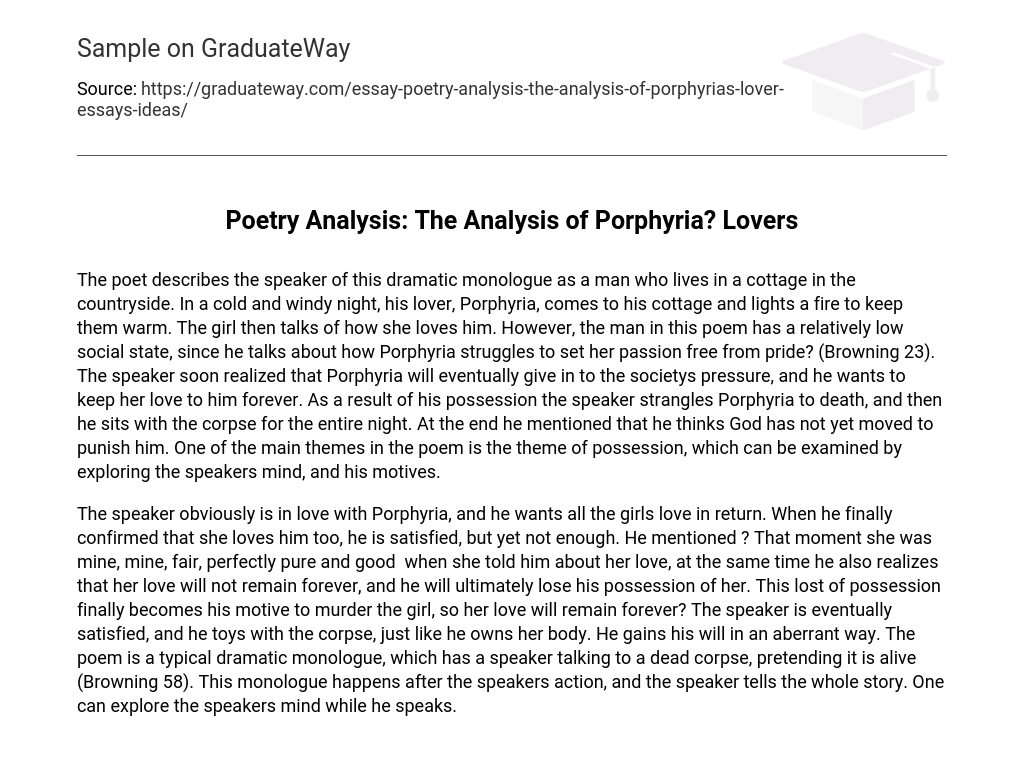The speaker in this dramatic monologue is depicted by the poet as a man residing in a cottage in the countryside. On a cold and windy night, Porphyria, his lover, arrives at his cottage and lights a fire to keep them warm. She expresses her love for him. However, the speaker, who holds a lower social status, observes how Porphyria struggles to liberate her passion from societal constraints (Browning 23). Realizing that Porphyria may succumb to societal pressure, the speaker desires to preserve her love for himself indefinitely. Consequently, driven by his possessiveness, he strangles Porphyria to death and spends the entire night sitting with her lifeless body. In conclusion, he mentions that he believes God has not yet punished him. The theme of possession stands out in the poem and can be explored through an examination of the speaker’s thoughts and motives.
The speaker demonstrates a strong affection for Porphyria and desires reciprocated love from other women. While he initially finds satisfaction in Porphyria confessing her love, he also realizes that her love will not last forever, leading him to fear losing possession of her. This fear ultimately drives him to commit murder, believing that this act will preserve her love eternally. The speaker takes perverse pleasure in toying with her lifeless body, as if he still possesses her. This poem exemplifies a typical dramatic monologue in which the speaker converses with a deceased individual, pretending they are alive. The monologue occurs after the speaker’s transgression, serving as a platform for him to narrate the entire story. Through the speaker’s words, one can gain insight into his mentality.





